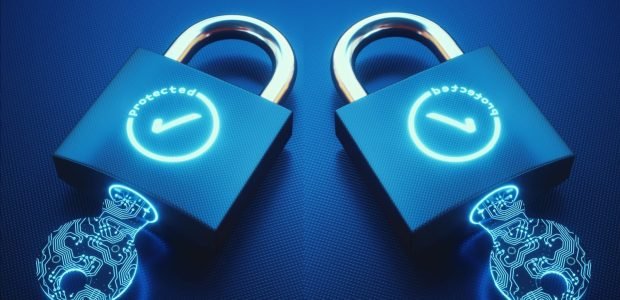
The ubiquitous lock provides dependable protection for our homes, offices, and possessions in a world where security is critical. Nevertheless, it could be challenging to select the best security lock given the abundance of possibilities. Every kind of lock, from cutting-edge smart locks to conventional padlocks, has unique features and advantages. So that you can make an informed decision, let’s look at the security lock market and weigh the advantages and disadvantages of different solutions.
Security Lock Deep Analysis
Conventional Padlocks:
- period-Tested Reliability: Conventional padlocks have been used to secure a range of items for a very long period.. .
- Affordability: A broad spectrum of people may afford padlocks, which are frequently the least priced security measure..
Restricted security features: - While traditional padlocks lack sophisticated functions like remote access or keyless entry, they are nonetheless sufficient for addressing basic security requirements..
- Appropriateness for Physical Attacks: Physical attacks such as lock picking and the use of bolt cutters can be used against padlocks, particularly those made of subpar materials..
Deadbolt locks:
- Increased Security: Because of their strong design and bolt mechanism that pierces the door frame deeply, deadbolt locks provide greater security than padlocks..
- Variety of Options: To provide varying levels of security, deadbolts are available in single-cylinder, double-cylinder, and keyless access varieties.
- Installation prerequisites: Professional assistance may be necessary while installing a lock, especially for models that call for precise alignment and drilling.
- Key management: Conventional deadbolts require physical keys, which increase the danger of theft or duplication.
Intelligent Locks:
- Convenience: With features like keyless entry, remote locking and unlocking, and integration with home automation systems, smart locks provide unmatched convenience.
- Enhanced Security Features: To add even more security layers, many smart locks include sophisticated security features like activity logs, tamper alerts, and biometric authentication.
- Integration with Smart Home Ecosystems: The smooth integration of smart locks with other smart home appliances enables centralized control and automation.
- Potential Vulnerabilities: There may be dependability and data privacy issues with smart locks because they are susceptible to hacks and technological challenges.
Locks with Combinations:
- Key-Free Operation: Combination locks provide keyless entry through the use of numerical codes or patterns, so keys are not necessary.
- Customized Security: By developing their own special combination codes, users can customize a security system to suit their needs.
- Forgetting Combinations: Combination locks have the drawback that it is easy to lose the code or forget it, which can result in lockouts or the requirement for time-consuming manual override techniques.
- Problems with Durability: Certain combination locks may experience wear and tear over time that jeopardizes their dependability and security.
Locks using biometrics:
- Cutting-Edge Security: Biometric locks provide superior security and user authentication by controlling access through facial, fingerprint, or retinal recognition technologies.
- tailored Access: Since each user’s biometric information acts as their access credential, biometric locks offer a highly customized security solution.
- Installation Difficulty: Because integrating biometric sensors and authentication systems might be a technological challenge, installing biometric locks may require expert assistance.
- Potential False Rejections or Acceptances: Biometric locks may encounter problems with more sophisticated systems, such as false rejections (the incapacity to identify authorized users) or false acceptances (allowing access to unauthorized users), however these are rare.
Comparative Evaluation:
When selecting a security lock, it’s critical to consider elements like installation requirements, ease of use, security level, and potential vulnerabilities. Here is a quick comparison of the locks that were brought up:
- Traditional padlocks: These are great for people on a small budget or with minimal security requirements, but they are prone to physical attack and don’t have many modern features.
- Deadbolt locks: These locks, which are more secure than padlocks, come in a range of styles and can be professionally installed and maintained. Genuine keys are needed.
- Smart locks: offer unparalleled convenience and cutting-edge security features, but they could be subject to technical problems and hackers.
- Combination locks:These provide customizable security and keyless entry, but they also have problems with durability and the possibility of forgotten combinations.
- Biometric locks: These provide highly sophisticated security and customized access control, but they could need professional installation and have problems with erroneous approvals or denials.
Advanced Lock Systems for Door Security
Protecting your home or place of business requires installing a strong door security lock. Considering the rise in burglaries and break-ins, you might feel more at rest knowing that your loved ones and your possessions are secure if you make an investment in state-of-the-art lock systems. Let’s look at how you might use modern door security locks to strengthen your security measures.
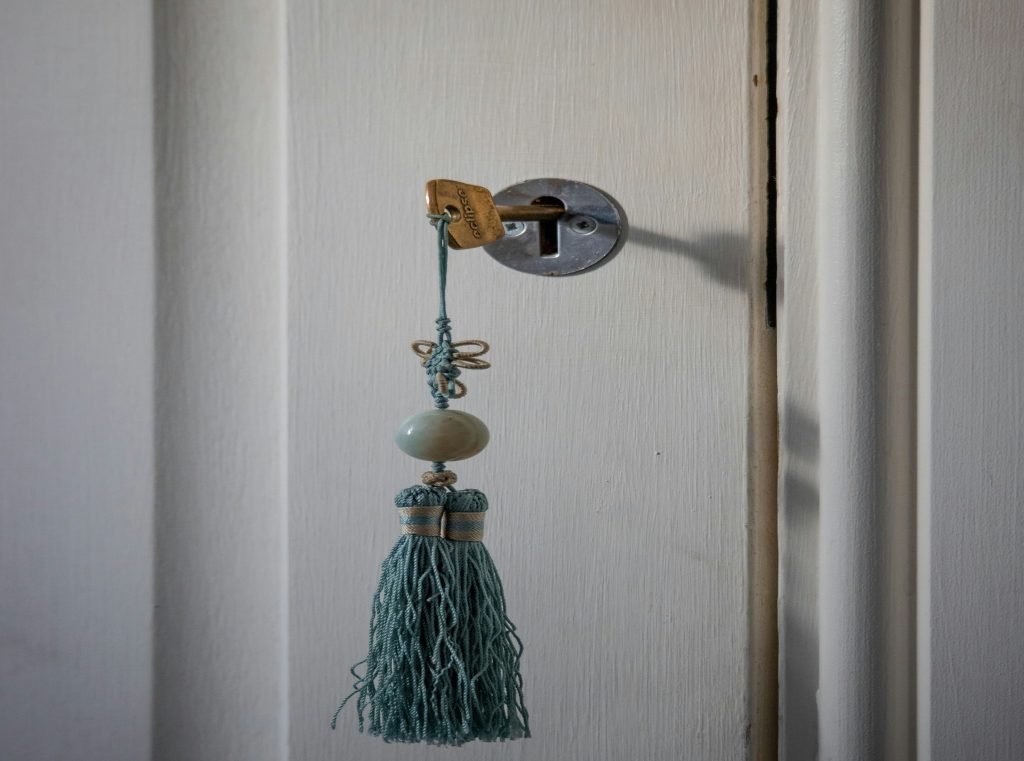
Investing in high-tech door security lock systems is crucial if you want to keep criminals out of your house. high-security locks with deadbolts, smart lock systems, Among your possibilities are keyless entry systems, multi-point locking systems, and biometric door locks, each of which can enhance your security measures in a different way. By using these state-of-the-art lock systems in your security plan, you can protect your doors and improve your security posture.
1. Extremely Secure Deadbolt Locks:
These locks have strong deadbolts that are firmly inserted into the door frame, making it more difficult for intruders to gain entry. Reinforced striking plates increase security and discourage attempts at forced entry by fortifying the area where the bolt contacts the door frame.
2. Intelligent Locking Devices:
Intelligent door locks offer keyless access alternatives that eliminate the need for physical keys and the risk of duplicate or lock picking. You may increase convenience and security by remotely locking or unlocking your doors with a smartphone app. Remote access control is the term for this functionality.
3. Door locks using biometrics:
With fingerprint recognition technology, biometric door locks provide a highly secure and personalized authentication method for access control. These advanced locks provide an additional layer of security by ensuring that only authorized individuals with registered biometric data may enter.
4. Keyless Entry Devices:
By using touchpad entry devices or access codes instead of actual keys, keyless entry systems improve security. Access codes are easily customizable and manageable, allowing you to grant service providers or visitors temporary access without compromising security.
Selecting an Appropriate Front Door Security Lock:
To ensure the highest level of safety, selecting the ideal front door security lock necessitates carefully considering a number of factors. Your front door’s security locks shield your home against trespassers and unauthorized entry. By choosing the right lock and making an investment in state-of-the-art security systems, you can fortify your front door and raise the level of protection throughout your house. Prioritize security, usability, and compatibility when selecting a front door lock to provide your family piece of mind and the best possible safety for your home. Here are some important things to keep in mind:
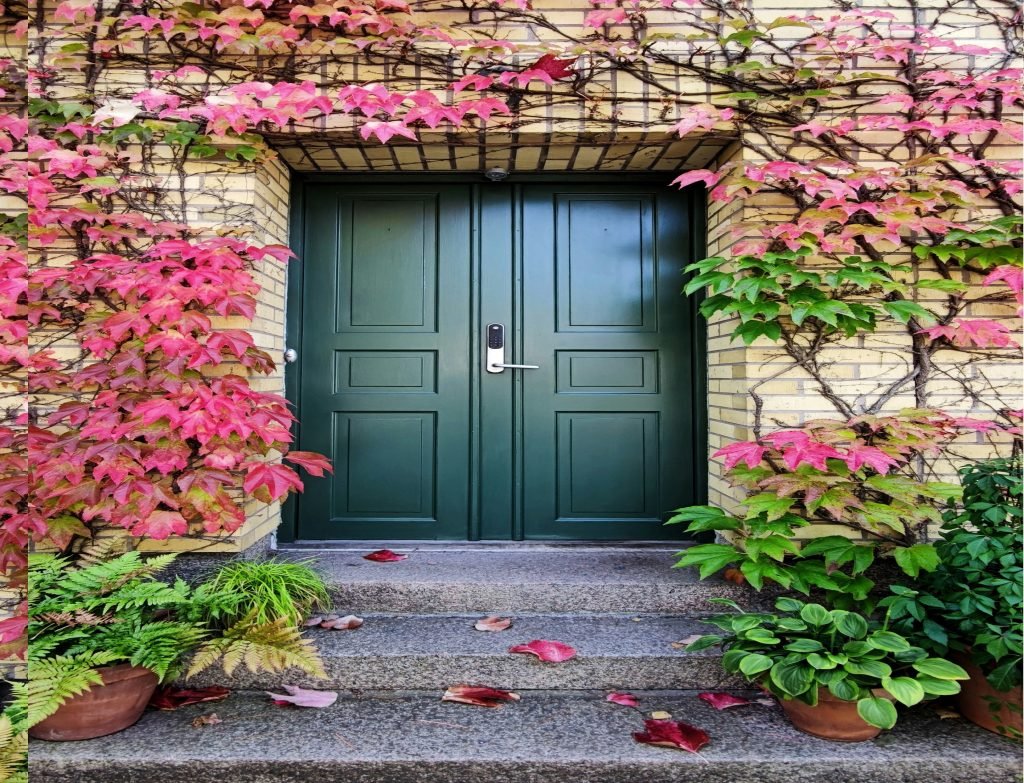
1. Security Level: Give top priority to anti-tampering methods including sturdy deadbolts, strengthened strike plates, and other apparatuses. To successfully repel potential invaders, use locks that are robust enough to resist industry security regulations.
2. Sort of Lock: Think about a variety of front door lock alternatives, including keyless entry systems, smart locks, and traditional deadbolts. Because each type has unique features and benefits, choose the one that best meets your security needs and preferences.
3. Installation Requirements: Think about the installation process and whether you require professional help. Front door locks may require special installation techniques or modifications in order to fit and function correctly.
4. Compatibility: Make sure the material and design of your front door complement the lock you have chosen. Make that the door thickness, handle placement, and existing hardware are compatible to avoid compatibility issues during installation.
5. Convenience: To balance security and convenience, look for front door locks with features like keyless entry, remote access control, or connectivity with smart home appliances. These characteristics increase security without compromising ease of use.
Improving Front Door Security with Cutting-Edge Locks:
Modern front door security lock systems can greatly improve the security measures in your home. Here are two popular options to consider:
1. Smart Lock Systems: With a smart lock’s keyless entry options and remote access control, you can lock or unlock your front door from anywhere at any time using a smartphone app. By eliminating the need for physical keys and offering modern authentication alternatives like fingerprint recognition or keypad entry, these locks improve convenience and security.
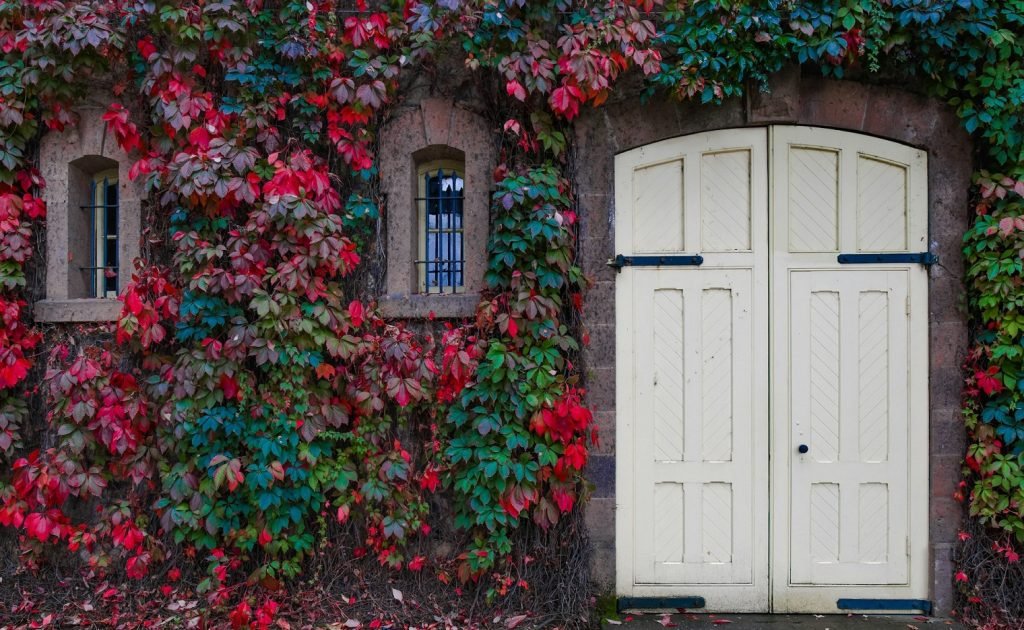
2. Multi-Point Locking Systems: Multi-point locking systems, as opposed to traditional single-point locks, have many locking points along the door’s edge, providing better resistance to attempts at forced entry. These advanced locking mechanisms spread the force of any attempted break-in, making it more difficult for intruders to bypass the lock.
Comparing the Security Locks on French and Sliding Doors
You need to secure your home’s entry points in order to safeguard your family and belongings. When it comes to door security, sliding and French doors are popular options because of their usefulness and aesthetic appeal. However, different types of doors require different security strategies. Let’s look at the security aspects of French and sliding door locks to help you make an informed decision.
Security Locks for Sliding Doors:
1. Style and Usability:
Sliding doors typically have a latch mechanism that works with a strike plate or loop to lock the door. Common types of sliding door locks include surface-mounted bolt locks, dual-function locks that also serve as handles, and foot-operated locks.
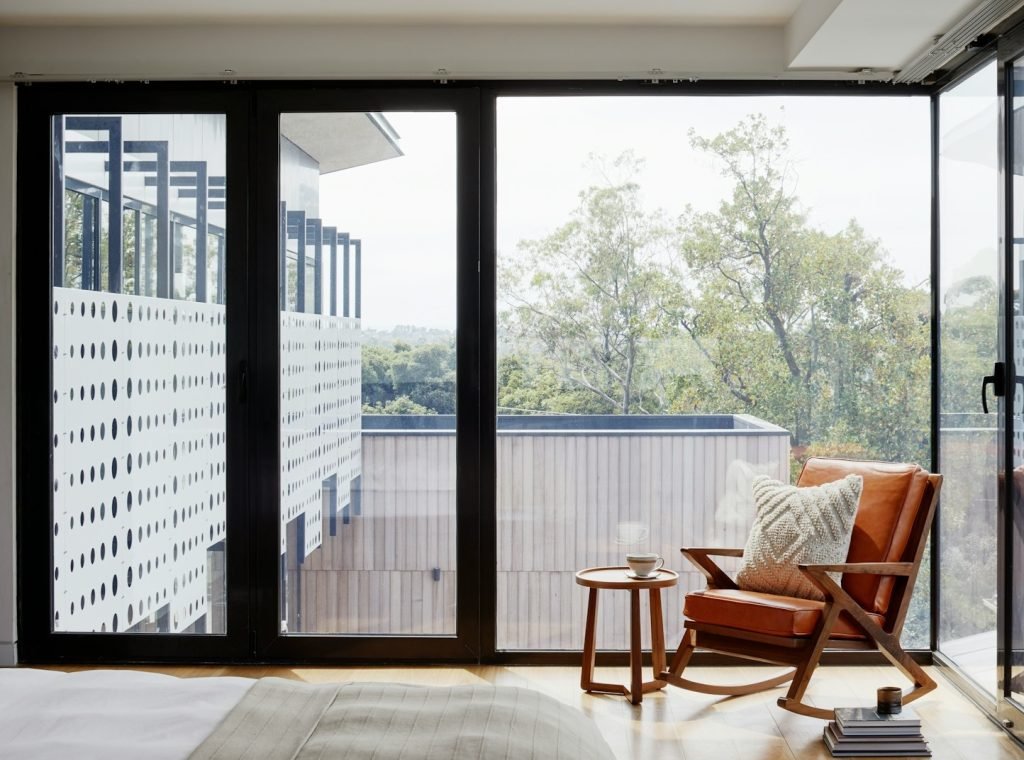
2. Installation Ease:
Installing sliding door locks is usually easy and doesn’t always require specific tools or adjusting the door frame. Since surface-mounted bolt locks don’t need to be drilled in place, they are a useful option for do-it-yourself installations.
3. Features of Security:
Sliding door security locks come in different levels of security. While some offer basic security against unauthorized access, others have more advanced features like tamper-resistant devices or keyless access. By adding extra security measures like installing security bars or grilles and fortifying the door frame, sliding doors can be made more secure overall.
Security Locks for French Doors:
1. Style and Usability:
French doors typically feature two doors that can open both ways and are repeatedly locked along the vertical stile. Standard French door locks include multi-point locking systems, mortise locks, and surface-mounted deadbolts.
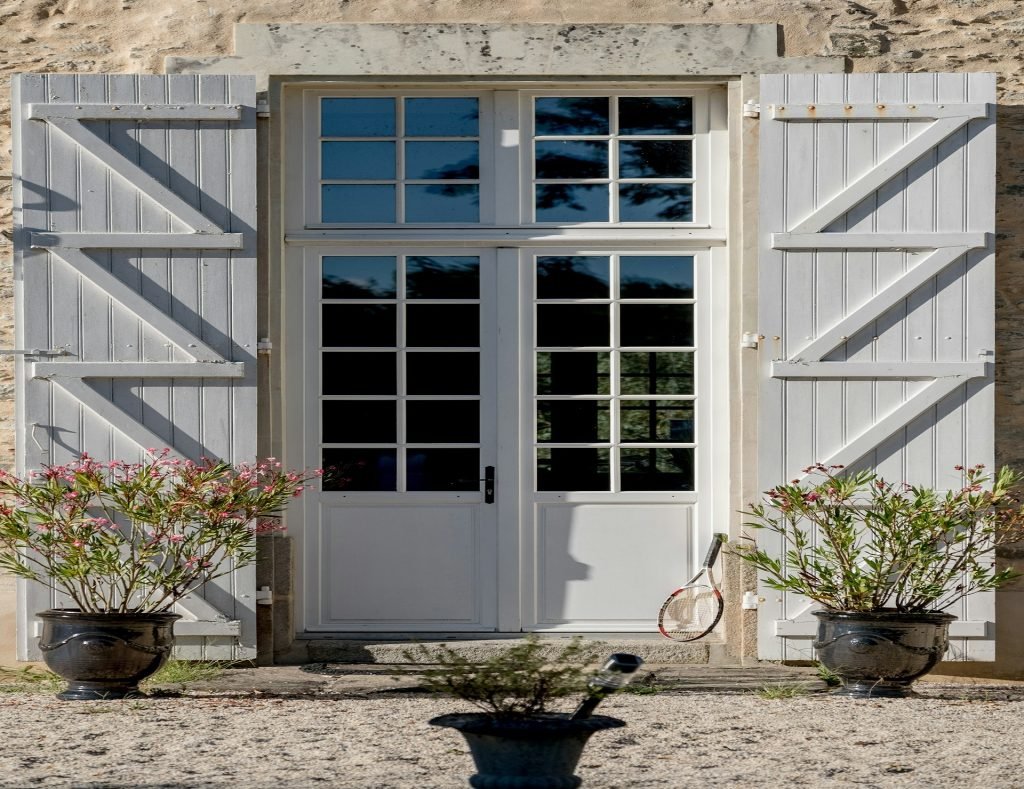
2. Installation prerequisites:
The complex mechanisms in French door locks require precise alignment with numerous locking points, which could call for expert installation. Modifying the door frame may be necessary when adding additional hardware for multi-point locking systems.
3. Features of Security:
Security locks for French doors are more secure than those for sliding doors because of their robust construction and multi-point locking systems.
Security Locks and Keys
For many years, security locks and keys have been essential tools for safeguarding our belongings and property. These are vital tools for protecting our homes, businesses, and belongings; they range from traditional padlocks to modern smart locks. Let’s look at the significance of security locks and keys as well as the advancements in their technology.
The Development of Keys and Security Locks:
People have developed a variety of strategies throughout history to safeguard the possessions they own. The earliest locks are supposed to have been wooden ones that were used in Mesopotamia and ancient Egypt to lock chests and doors. Over time, advancements such as metal locks, key-operated systems, and intricate essential designs were introduced, resulting in changes to the appearance and functionality of locks.
The advancement of technology has also been mirrored in security locks and keys. To increase security and convenience, modern locks utilize cutting-edge designs and materials with electronic components, wireless connectivity, and biometric sensors.
Security locks and keys, which provide comfort and security against unauthorized access, are the only things that could make our daily life complete. These devices are necessary for maintaining security and privacy, whether they are being used to protect our homes, safeguard our belongings, or save private information. We might expect further developments in vital systems and security locks as technology advances, ensuring our belongings are safe and secure in a world that is always changing.
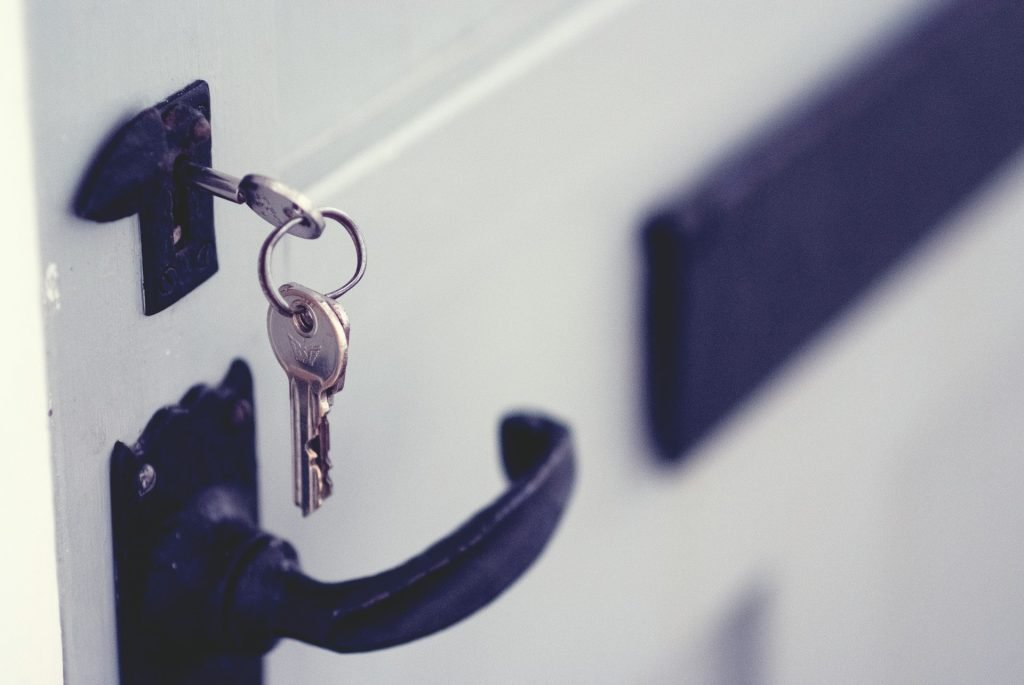
Essential Elements of Security Keys and Locks:
1. Locking Systems:
• A range of mechanisms are employed by security locks to safeguard cabinets, doors, and additional points of entry. Common lock mechanisms include disc tumbler locks, pin tumbler locks, lever locks, and wafer locks.
• While each lock mechanism works differently, they are all based on the placement of discs, pins, or levers to prevent the lock from opening in the event that the incorrect key is not used.
2. Important Designs:
• Security locks depend on keys to operate since they provide the special combination needed to unlock the mechanism.
• Depending on the type of lock they are intended to be used with, keys have different designs. Traditional keys have notches or grooves that match the internal components of the lock, whereas modern keys may include electronic components or biometric data for increased protection.
3. Components and Architecture:
• Security locks and keys are typically made of durable materials like steel, brass, or aluminum to withstand abrasion.
• Better locks may have reinforced sections, anti-drill plates, and hardened steel shackles to prevent forceful entrance and tampering.
Advantages and Features of High-Security Locks
High-security locks provide cutting-edge security features and advantages for homes and businesses that improve protection, peace of mind, and long-term cost savings. By making an investment in high-security locks, homeowners can fortify their houses against potential threats and enjoy years of greater security.
The goal of high-security locks is to provide the strongest defense against break-ins and illegal access. Modern locking systems provide businesses and homes a plethora of features and benefits that enhance security and alleviate anxiety.
Extra Security Functions:
1. Patented Key Control: Vital control systems frequently use high-security locks to prevent unwanted key duplication. This feature makes sure that only authorized users can obtain duplicate keys by reducing the likelihood of unwanted access.
2. Anti-Pick Mechanisms: High-security locks with anti-pick features, such as mushroom locks or spool pins, make it more difficult for would-be criminals to utilize picking tools to enter the lock. These unique pins increase security by fortifying the lock’s defense against bumping and picking techniques.
3. Drill Resistance: High-security locks are built with stronger components and hardened materials to withstand drilling attacks. Anti-drill plates, reinforced steel inserts, and strengthened cylinders provide extra protection against efforts to force the entrance with drilling equipment.

Advantages of Locks with High Security:
1. Enhanced Security: High-security locks offer superior defense against unauthorized entry, invasions, and break-ins. The modern security features and robust construction effectively discourage would-be intruders, augmenting the safety and security of residential and business areas.
2. Peace of Mind: When businesses and homeowners install high-security locks, they can rest easy knowing that their properties are well-protected against potential dangers. The durability and dependability of these locks instill confidence in the security measures.
3. Long-Term Cost Savings: High-security locks may initially cost more than standard locks, but over time, they will prove to be more advantageous. The robust construction and state-of-the-art security features of high-security locks minimize the likelihood of break-ins and security breaches, thereby lowering the need for costly future repairs or replacements.
Security Lock Boxes Features
Security lock boxes are vital tools for protecting valuables, documents, and personal information. Use these boxes at home, in the office, or on travels for a trustworthy method of preventing valuables from being lost, damaged, or stolen. When using security lock boxes, keep the following important things in mind:
1. Sturdiness and Design:
Choose a security lock box made of materials like steel or reinforced plastic that are resistant to tampering attempts and environmental elements. Make sure the box is sturdy and has locking mechanisms and strengthened hinges to prevent forced entry.
2. Locking Systems:
• Select a security lock box such as an electronic keypad, combination lock, or key lock that has a reliable locking mechanism. Think about adding features like multiple locking systems or tamper-resistant locks for added security.
3. Dimensions and Absorbency:
• Select a security lock box based on your storage needs and the size of the items you intend to retain. Take into account the interior’s dimensions, capacity, and potential for compartmentalization to properly house various items.
4. Mounting and portability options:
• Depending on your demands, choose a security lock box that can be mounted to secure it in a permanent location or one that is portable for travel.
• Look for features like carrying handles, mounting brackets, or security cords for increased convenience and versatility.
5. Water and Fire Resistance:
• Consider investing in a safe lock box with waterproof and fire-resistant features to guard against irreplaceable documents and electronic devices being destroyed in an emergency. Look for boxes with UL or ETL certifications for fire and water resistance to ensure dependability and efficiency.
6. Privacy and Access Control:
• By restricting access to only those who are permitted and keeping keys or codes secure, you may maintain control over who has access to the security lock box. When selecting a lock box, take into account the privacy of the items being stored and look for features like opaque materials or concealed hinges to keep contents hidden.
Conclusion:
Security locks are vital tools for safeguarding our homes, businesses, and possessions. By providing an essential layer of protection against theft, unauthorized access, and invasions, these essential devices offer security and peace of mind to individuals as well as organizations.
Over time, security locks have evolved from simple mechanisms to complex systems with state-of-the-art features like impermeable designs, biometric verification, and remote access control. Each type of security lock, such as deadbolt, smart, biometric, and traditional padlocks, offers unique benefits and features to meet a variety of needs and preferences.
Frequently Asked Questions (FAQs) About Security Locks:
1. What is a security lock?
Security locks are used to lock cabinets, doors, and other entry points to prevent unauthorized access.
2. What types of security locks are available?
There are many different types of security locks available, including deadbolt, combination, smart, biometric, and padlock locks.
3. How do I choose the right door security lock?
Consider factors such as the level of security, kind of door (front, sliding, or French), ease of installation, and compatibility with existing hardware.
4. What features should I look for in a front door security lock?
Strong deadbolts, reinforced strike plates, keyless entry options, and compatibility with the design and material of your front door are a few things to check for.
5. How can I secure a sliding door?
Sliding doors can be secured using locks designed specifically for them, such as dual-function locks that also serve as handles, surface-mounted bolt locks, and foot-operated locks.
6. What are French door security locks?
French doors are designed specifically for security locks, since they often feature two doors that may open in either direction. These locks could be multi-point locking systems, mortise locks, or surface-mounted deadbolts.
7. What is a security lock and key?
A security lock and key system consists of a lock mechanism and a corresponding key that opens the lock. These systems provide secure access control for doors, cabinets, and other entry points.
8. What are high-security locks?
High-security locks provide with enhanced durability, unique vital control, drill resistance, and anti-pick mechanisms, among other advanced security features.
9. What are security lock boxes used for?
Security lock boxes are used to protect valuables, documents, or sensitive information against harm, theft, and illegal access.
10. How can I choose the right security lock box?
Consider features like durability, locking mechanisms, size and capacity, mobility or mounting options, fire and water resistance, and access control capabilities when choosing a security lock box.
Check out our new articles about Best Green Tea Brands Best Organic Coffee Modern Garden Edging Ideas Jovs Hair Removal Guide Best Headphone Amp The Best Tea Maker A Look at Weight Loss Gummies only at saveitmore